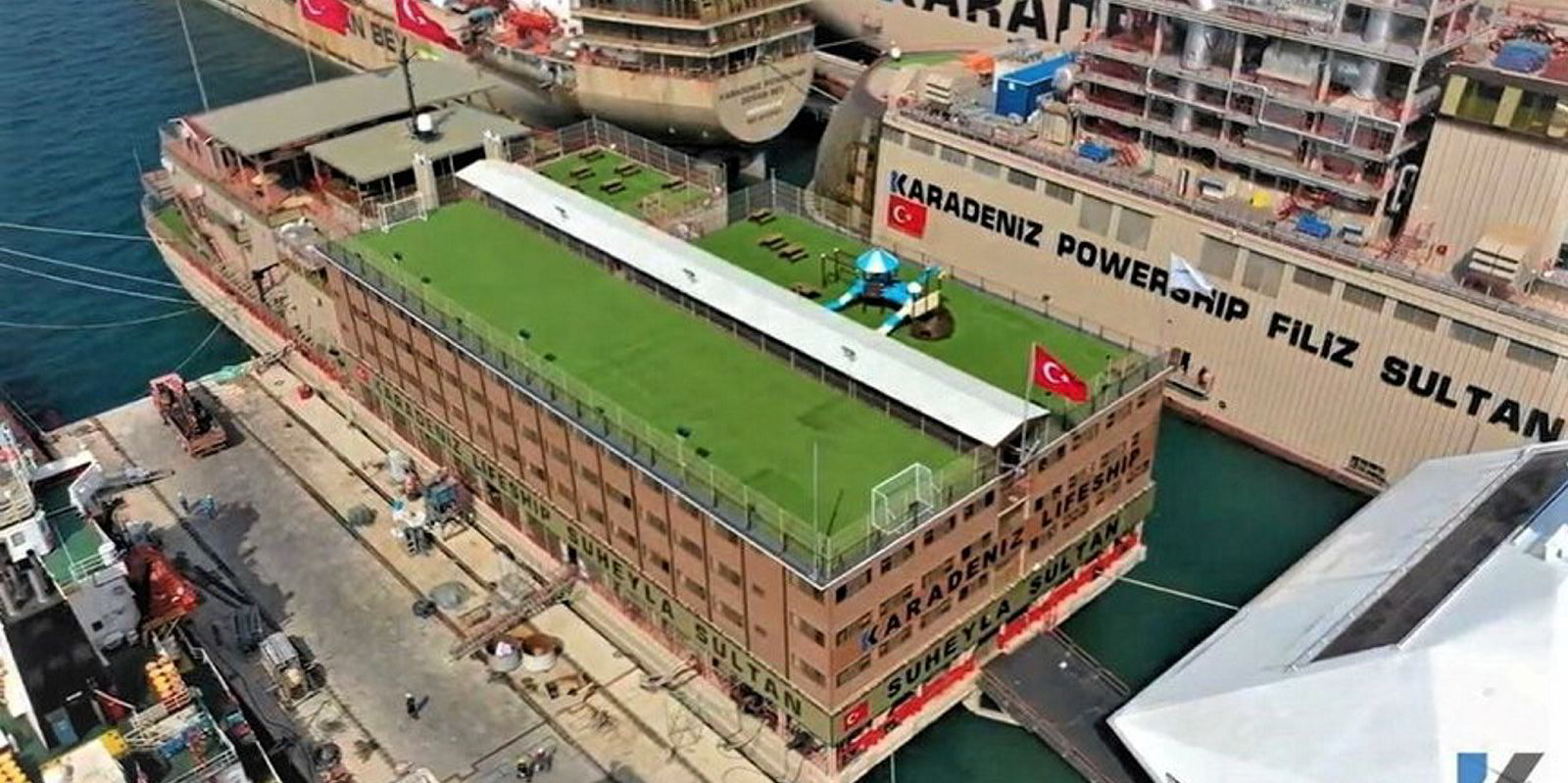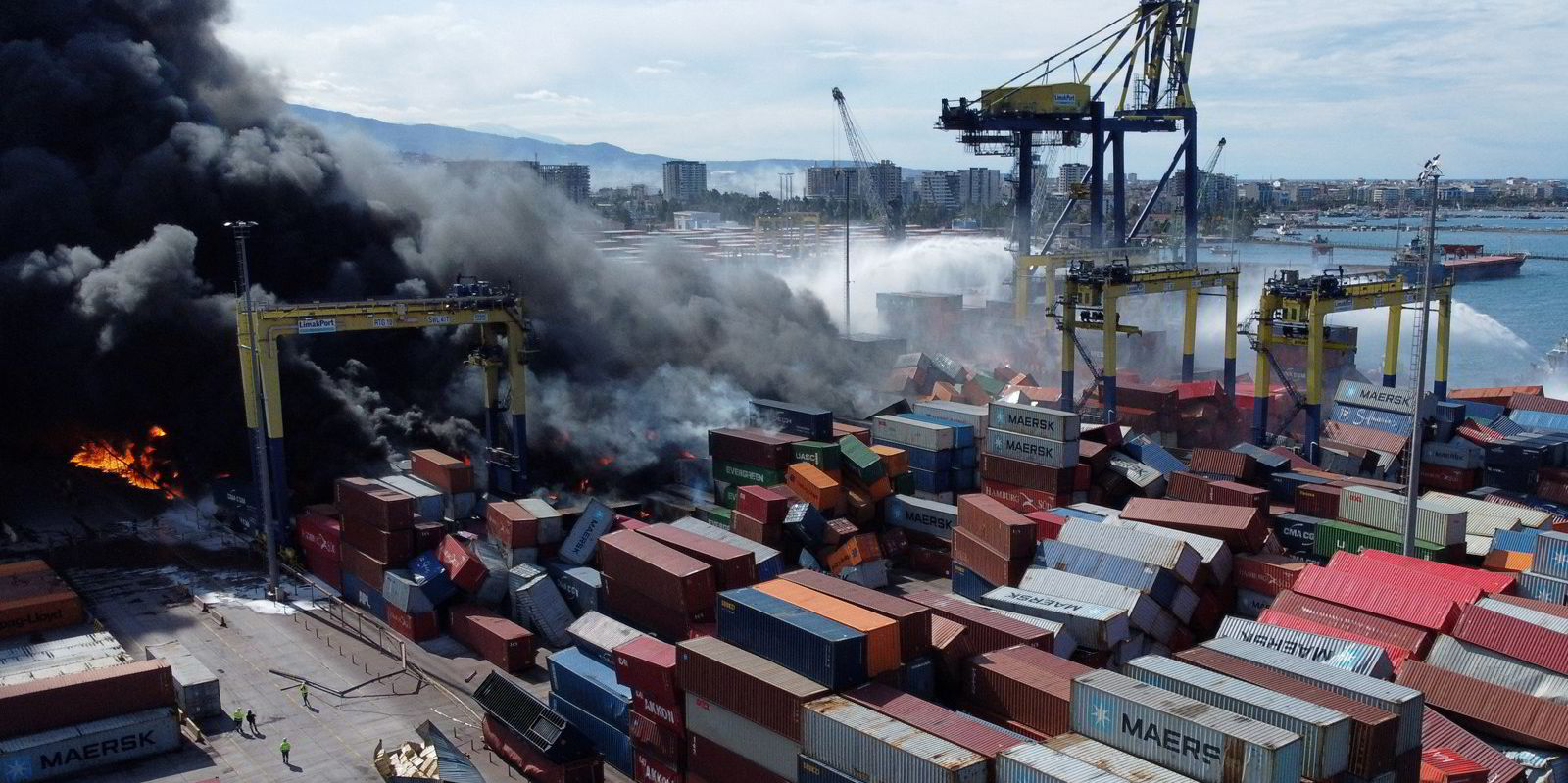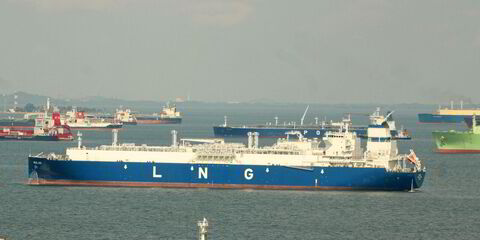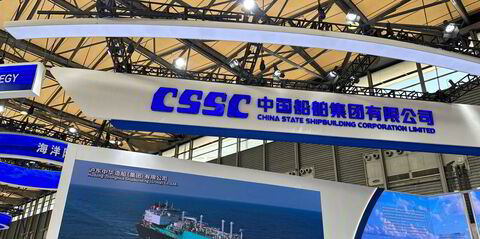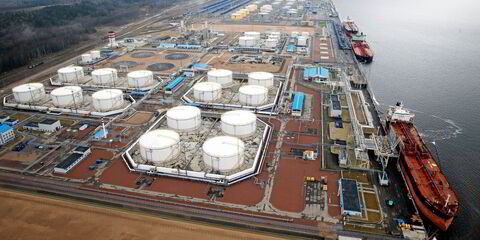As the toll from the devastating quakes in Turkey and Syria rises to more than 33,000 people confimed dead and hundreds of thousands losing their homes in freezing temperatures, maritime companies are rushing to offer help.
The most eye-catching contribution was made by Istanbul-based Karadeniz Holding, which announced on Saturday it was sending two vessels into the region that will be able to host 3,000 victims.
In what it describes as its first humanitarian mission ever, Karadeniz is deploying a pair of “Lifeship Floating Villages” to the affected area of Hatay and Iskenderun.
The ships in question are the Karadeniz Lifeship Suheyla Sultan and the Karadeniz Lifeship Rauf Bey.
They are “fully equipped with accommodation, living spaces; education, social and medical facilities, dining halls and galleys”, the company said on social media postings on 11 February.
According to Turkey’s state-run Anadolu news agency, the two floating villages will be deployed in 15 to 20 days after “necessary procedures” are completed.
The two ships are not currently listed on the fleet list of Karadeniz Holding, a company best known for deploying floating power stations in several troubled and energy-hungry parts of the world.
According to Anadolu, the Karadeniz Lifeship Suheyla Sultan and Karadeniz Lifeship Rauf Bey can operate independently from onshore infrastructure, which has been greatly damaged in the area.
Officials at Karadeniz did not immediately respond to requests for more details on the two vessels, such as where they are currently moored and whether they have been chartered by the Turkish government.
The last Karadeniz project to make headlines was in Ukraine, where the company said late last month it had agreed to provide about 500 MW of power through floating power stations possibly moored in neighbouring Moldova or Romania.
Working day and night
The Turkish state is already enlisting the help of ro-ro ships and simple fishing vessels to send humanitarian material into the region and to get people out.
On 12 February, 636 people left Iskenderun Port by ferry, the country’s general directorate for shipping said.
Also on 12 February, the 4,600-dwt Istanbul N (built 1980) reached Ceyhan Port, carrying 41 trucks, two truck trailers, three construction machines, four trucks and 88 support personnel.
“Our ships will continue to work to support the earthquake area,” the general directorate said.
Major liner players are weighing in on the effort as well.
The CMA CGM Foundation announced on 11 February that it was “mobilising its logistical expertise to help the affected populations”.
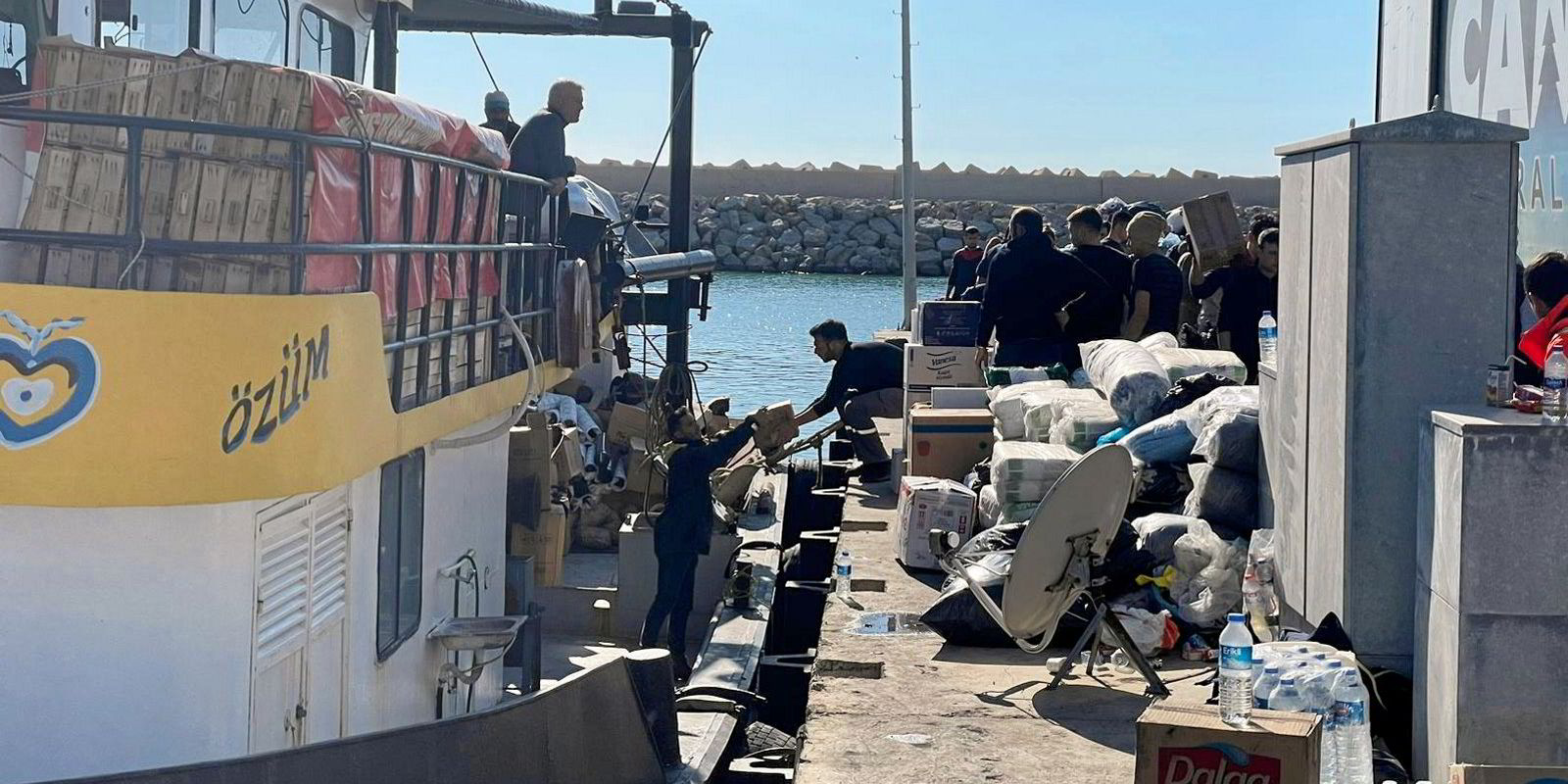
A CMA CGM aircraft was made available free of charge and took off on Sunday from Paris to Gaziantep, transporting a field hospital deployed by the French Civil Security.
“In addition, the CMA CGM Foundation is preparing its contribution to a humanitarian operation for the populations affected by the earthquake in Syria, in conjunction with non-governmental organisations and the United Nations,” the company added.
Individual Turkish shipping companies have been directly affected by the quake and are quietly assisting without making headlines.
“Many of our crew and staff are badly affected with loss of life and property,” one senior Turkish shipping executive told TradeWinds.
“We lost many people there, it’s awful,” another one wrote.
